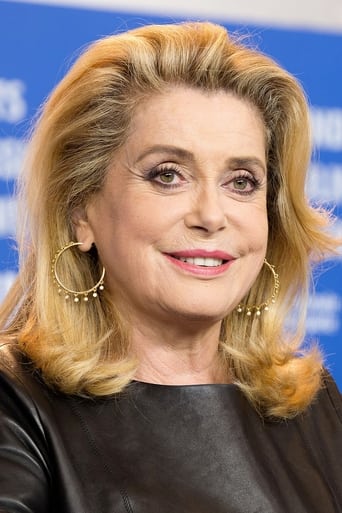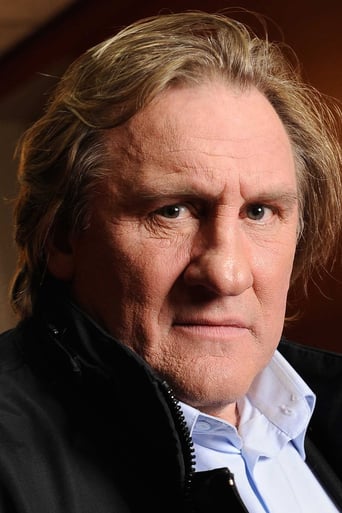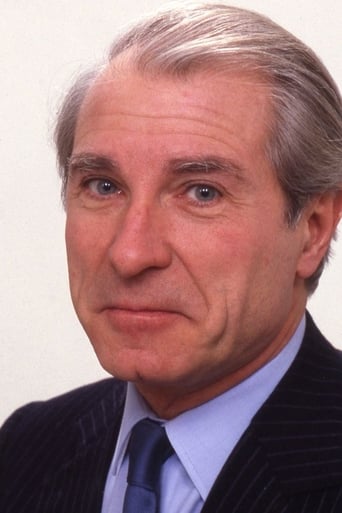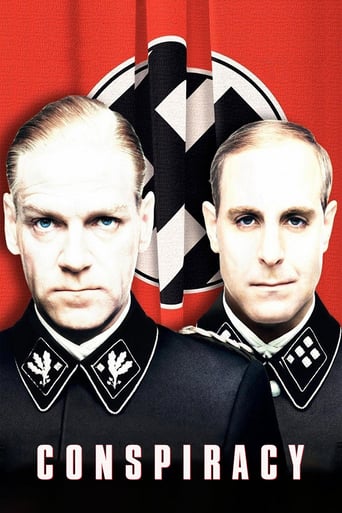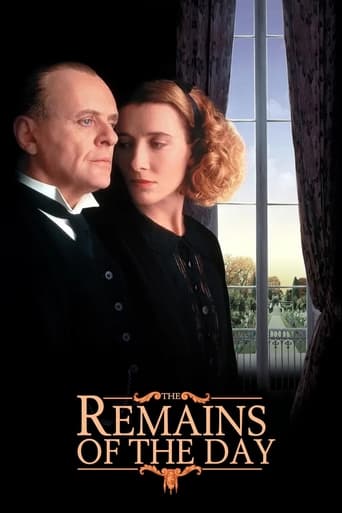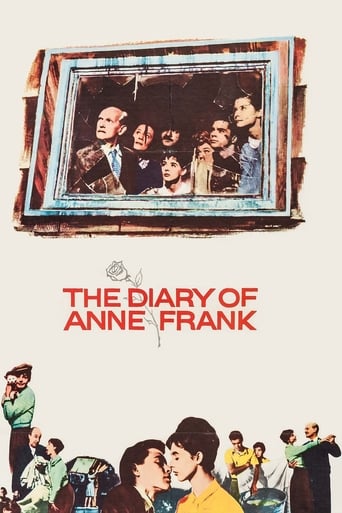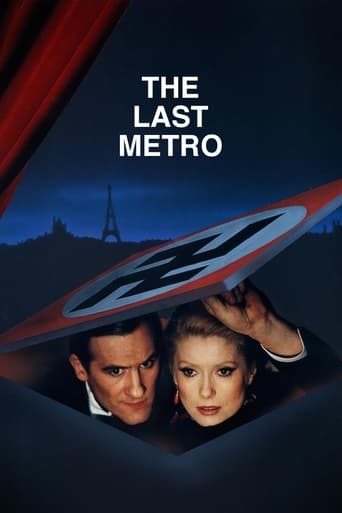
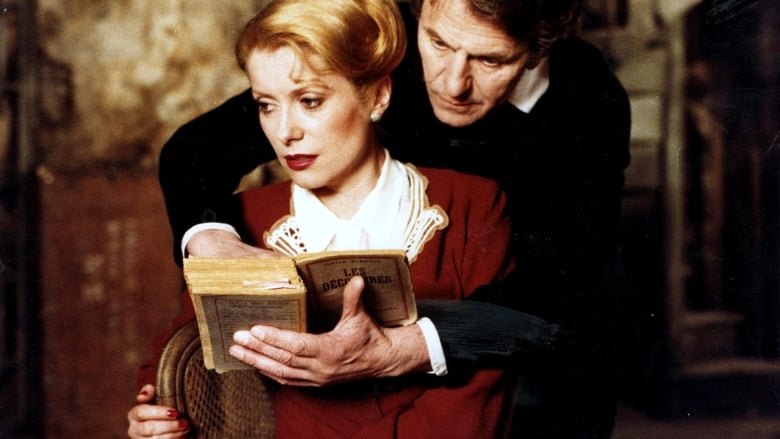
The Last Metro (1981)
In occupied Paris, an actress married to a Jewish theater owner must keep him hidden from the Nazis while doing both of their jobs.
Watch Trailer
Cast
Similar titles
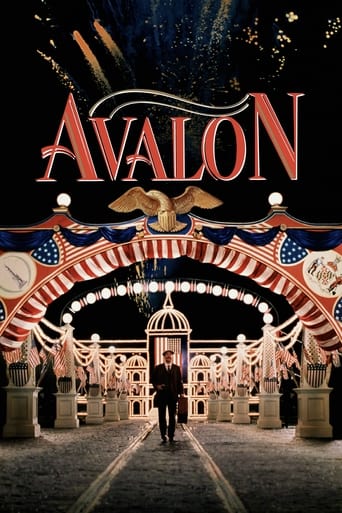

Reviews
The Age of Commercialism
Highly Overrated But Still Good
This is one of the best movies I’ve seen in a very long time. You have to go and see this on the big screen.
It's easily one of the freshest, sharpest and most enjoyable films of this year.
If a saw this film dozen I don't think I would be any the wiser as to what the director's intentions were. The French cinema has been a parlous state for some-while and it has survived in the main due to its ingenuity, Canal Plus and its utilisation of a never-ending conveyor belt of talented actors and writers. What the French cinema is most reluctant to do is to finance extensive film sets and 'The Last Metro' is no exception - even a 'brick wall' moved when leaned against! The scene is WW2, occupied France and a small Parisian theatre managed in the absence of her Jewish play-write husband by Film and stage actress Marion played by Deneuve. We very quickly learn that he hasn't fled France at all but is ensconced in the theatre's basement where he continues to write and direct in apparent secrecy, from everyone but his wife, listening to his productions through a chimney flue! Sounding implausible? Read on. Enter stage left Gerard Depardieu a dapper young leading man for the theatre's new production who, between learning his lines and trying to bed a lesbian co-worker (who writes this stuff?) starts acting furtively. Could our man be starting to give some meaning to this aimless exercise? Is he French resistance? Hooray, a stage prop, a record player purloined from the theatre is used in a Resistance bombing. Alas, don't hold your breathe expecting scenes of graphic carnage and dismembered Nazis. The producers no doubt rubbed their hands at the cost saving by simply having a radio broadcast announce the outrage. It doesn't get any better unfortunately and we are already past two hours. We are then treated to a five minute parody on the liberation of Paris - the film's only attempt at humour - before the final sequence where, with a play-within-a-play, the production at long last becomes imaginative. Too little too late I'm afraid. What were Deneuve and Depardieu thinking about when they signed up for this? And oh, the Last Metro? This refers to last Paris subway train to run at night before the curfew is enforced. Relevance to the film? Nothing in the slightest.
Although this precedes the Quentin Tarantino film by several decades, you have to wonder whether screenwriter Tarantino drew some inspiration for his storyline from THE LAST METRO. Its central female character is a woman who owns a theater and holds a dangerous secret--her Jewish husband is a hideout in the cellar and she is surrounded everywhere by the threat of Nazis during WWII in France.CATHERINE DENOUEVE and GERARD DEPARDIEUX play the actress and actor who have leading romantic roles in her husband's play--but their attraction to each other is not revealed until late in the film. She treats him with disdain and makes it clear that during rehearsals it is not necessary for him to touch her face or body in any way.They are an interesting pair, to put it mildly, much more than one-dimensional characters in a film full of theatrical flavor amid all the theater rehearsals for her husband's production of a Norwegian romantic drama. The acting is impeccable, although the play itself seems to be a poor imitation of life full of cliché-ridden dialog about a man and woman in an uneasy love relationship.Unlike the Tarantino film, there are no wild shootouts or raging infernos inside the theater. The drama is subdued all the way with just the right amount of tension to keep a viewer interested in the outcome. The satisfactory ending does not disappoint.Directed in leisurely style by Francois Truffaut, it is a showcase for Catherine Deneuve who walks off with most of the acting honors in a riveting, self-assured performance as a beautiful woman loved by the two most important men in her life.It's the kind of film Warner Bros. would have filmed in the '40s, with Joan Crawford, Zachary Scott and Paul Henried in the leading roles.
It is a strange feeling to read that many critics do not consider "Le Dernier Métro" as one of Truffaut's best films.This is absurd as Monsieur Truffaut was a cinéaste who considered all his films as equal.One is not sure as to how some harsh critics have considered this film as one of Truffaut's commercial projects.The truth of the matter is that Truffaut had always wanted to make a film about Nazism as he had experienced this vicious phenomenon as a young boy.It must be made clear that Truffaut did not make "Le Dernier Métro" in order to please critics,well wishers and admirers.As we talk of this film,it must be stated that "Le Dernier Metro" is an equivocal title for a Truffaut film.It is a title which denotes danger,uncertainty and utter chaos.This is because if one misses the last metro train there would be nothing but unpredictable hopelessness.For denizens of Paris during Nazi occupation time there were good chances that the last metro could be missed by many people who stayed out late nights for theatrical performances.Although this is a film about an artistic "ménage à trois",Le Dernier Métro deals with hidden sexualities of its different characters. It also talks of a restrained love affair which is dwarfed due to two lovers' arrogance. German occupation of Paris is shown in a light tone as there are no scenes of atrocities perpetrated by German soldiers. In this film we get an idea of how artists (cinema and theater) behave in a given set up.It also depicts cold critics who are able of destroy not only somebody's career but also an entire theater production house.Among the actors Andréa Ferréol is at her sensual best.Jean Poiret looks sleek too. The best thing about this film is German actor Heinz Bennent's performance as Lucas Steiner,a theater director who is fed up of his isolation.His character is similar to that of Marnie,a role played by Tippi Hedren in Alfred Hitchcock's film "Marnie".
The story of this film centers around a theater in Paris during the Second World War. Due the occupation by the Nazis, the Jewish owner of this theater (Lucas- played by Heinz Bennet) has signed it away to his wife Marion (Catherine Deneuve) and supposedly has fled to South America. Thats what everybody else besides his wife believes however since he's still hiding in the basement of the theater. She brings him food and keeps him company while she can but her main attention is on a new play that the theater is producing and is a decisive one since the survival of the theater depends on it. She plays the lead actress in this play and opposite her is an actor played by Gerard Depardieu. Listening in on the rehearsals, Lucas through Marion gives tips and is a kind of a second director of the play.Though I wouldn't call myself an expert on the subject, I think this film does an excellent job of portraying the wartime atmosphere of German occupied lands in WWII. A character I found most intriguing was a theater critic by the name of Daxiat (Jean-Louis Richard). Publicly he denounces Jews and says that each and every one of them must be hunted down. Deep down inside of him, a side which he reveals to Marion, he still has a lot of respect Lucas. People are living under constant fear of the Nazis, especially Marion due to her hiding her husband in her basement.Overall a pretty good film. If you enjoy good acting and WWII era films then this is for you.
